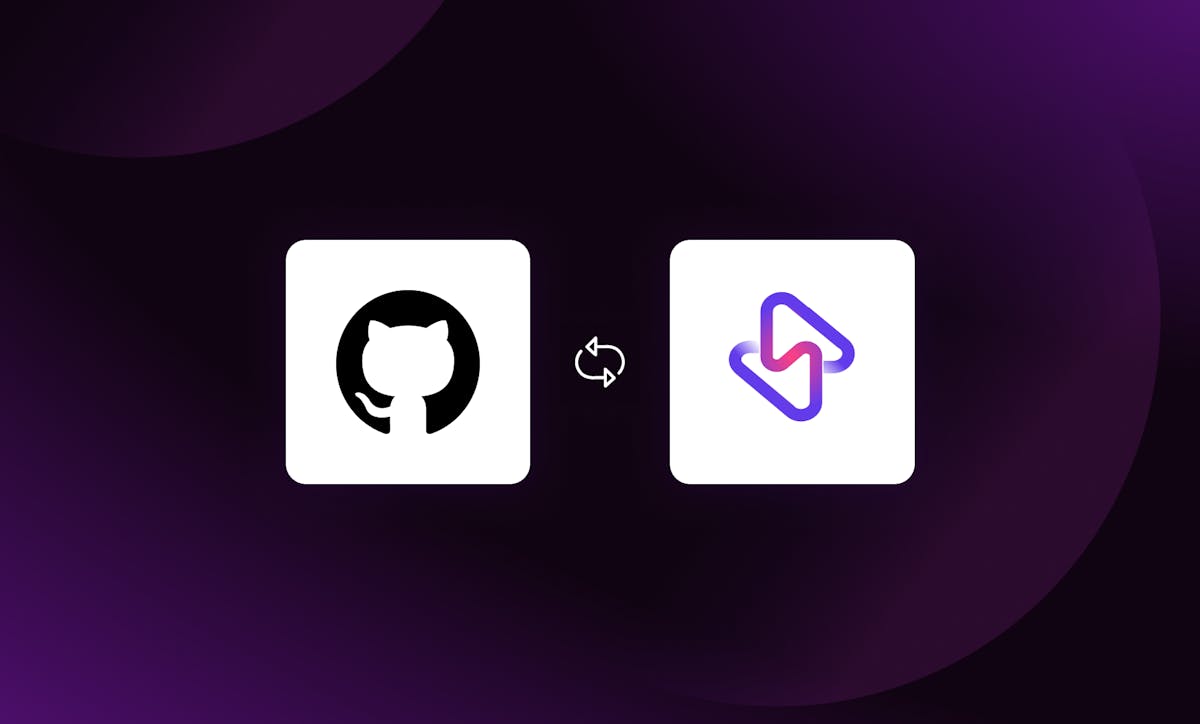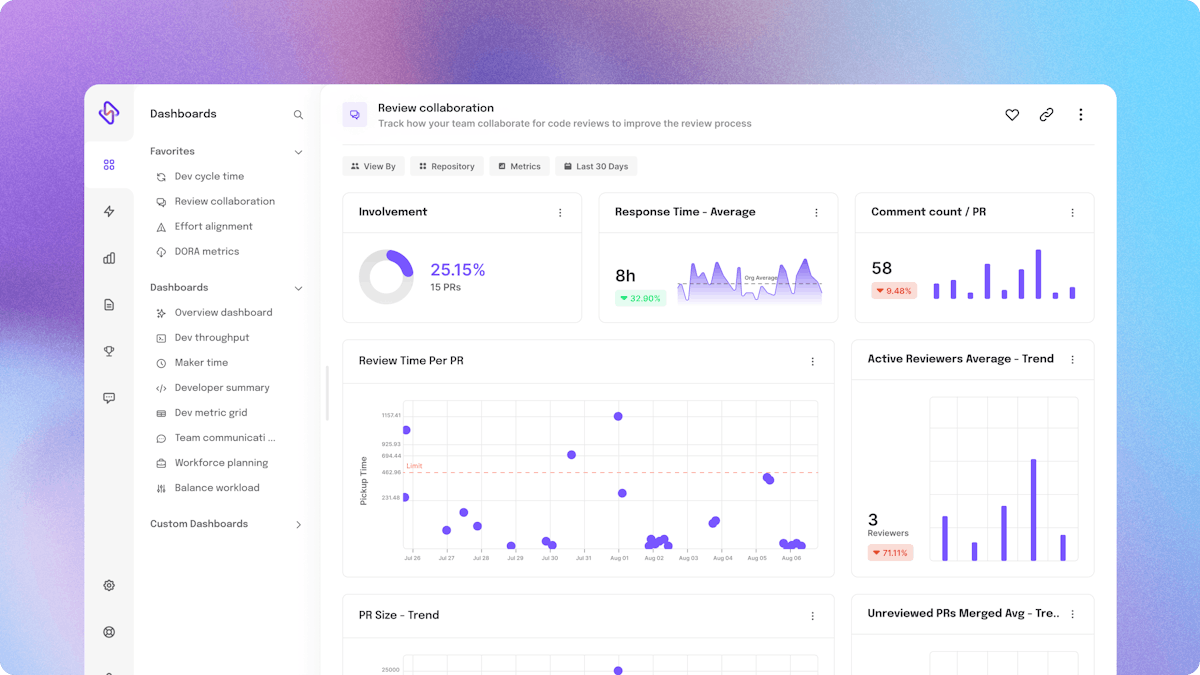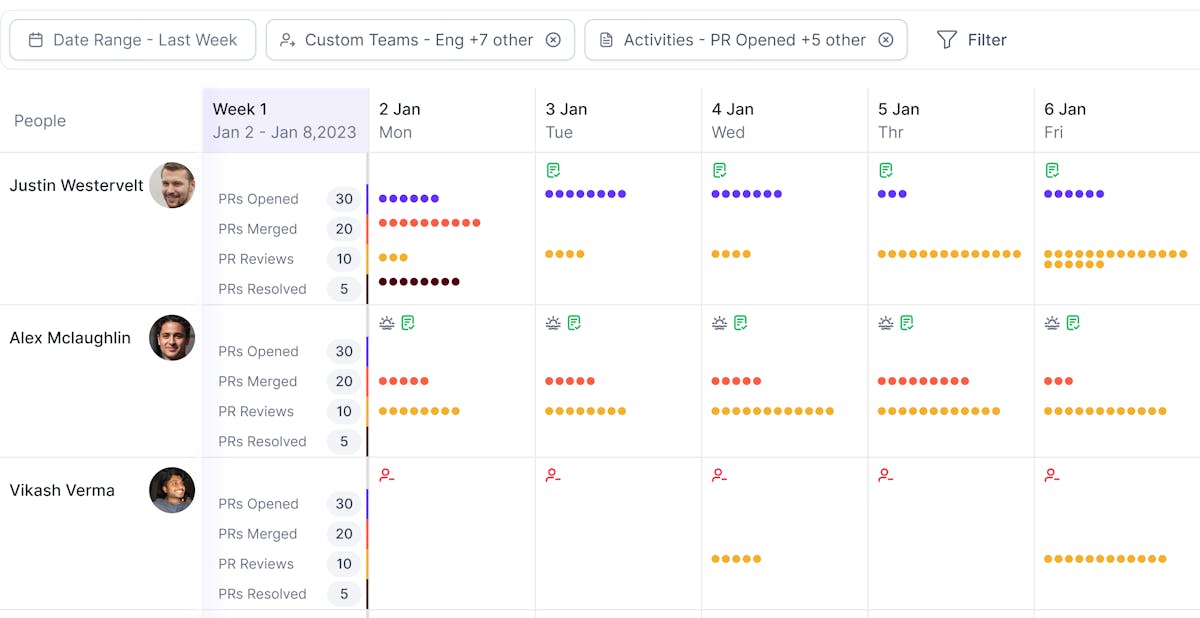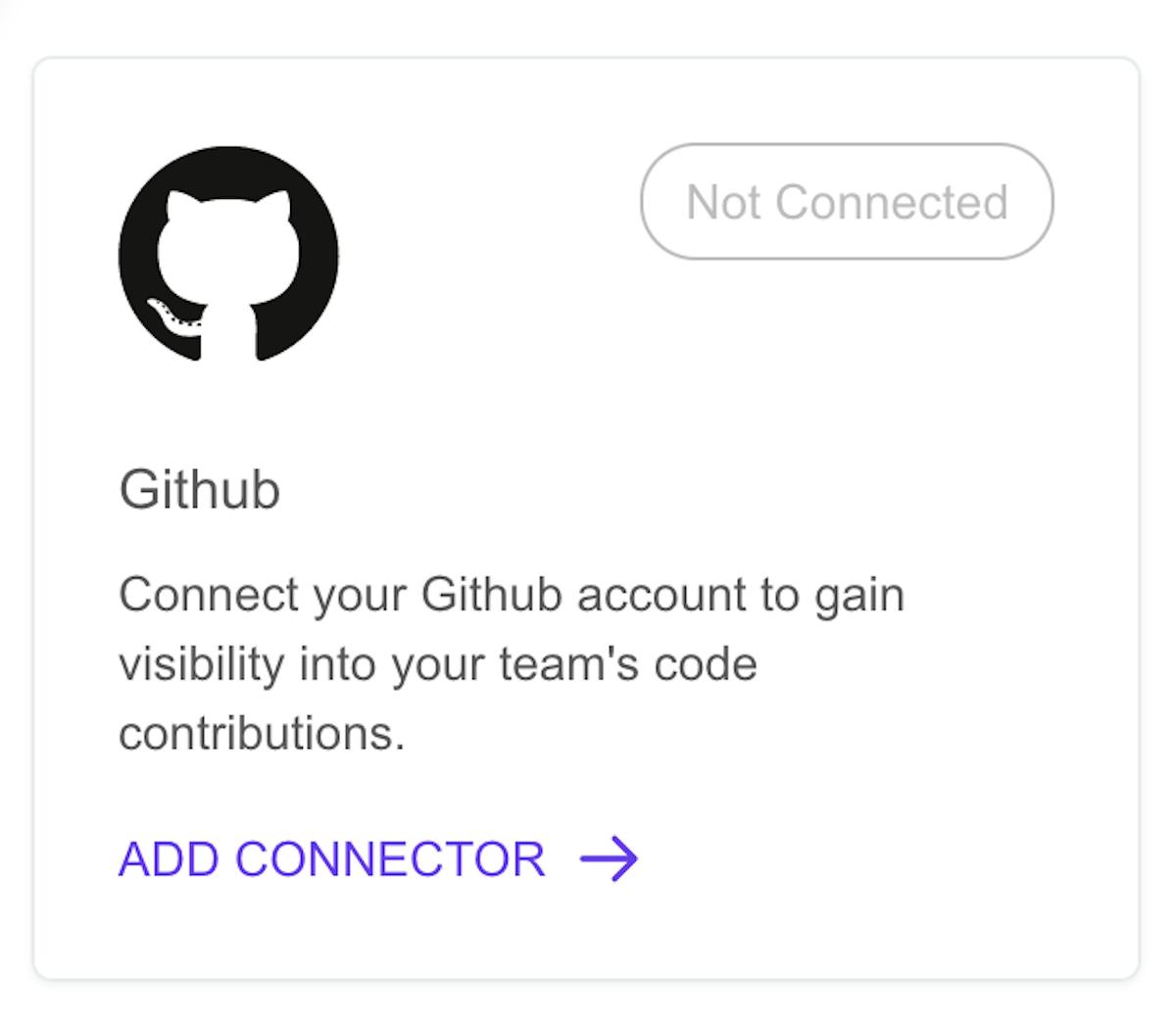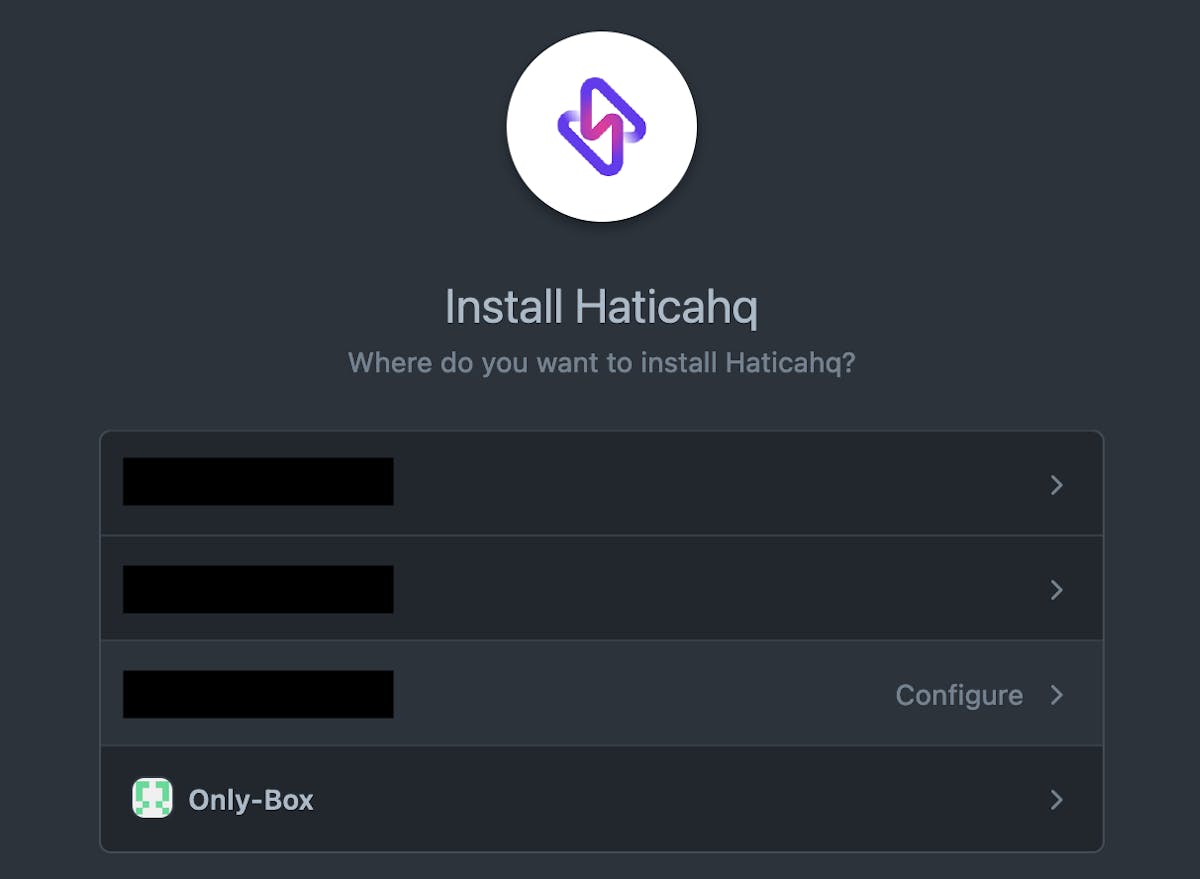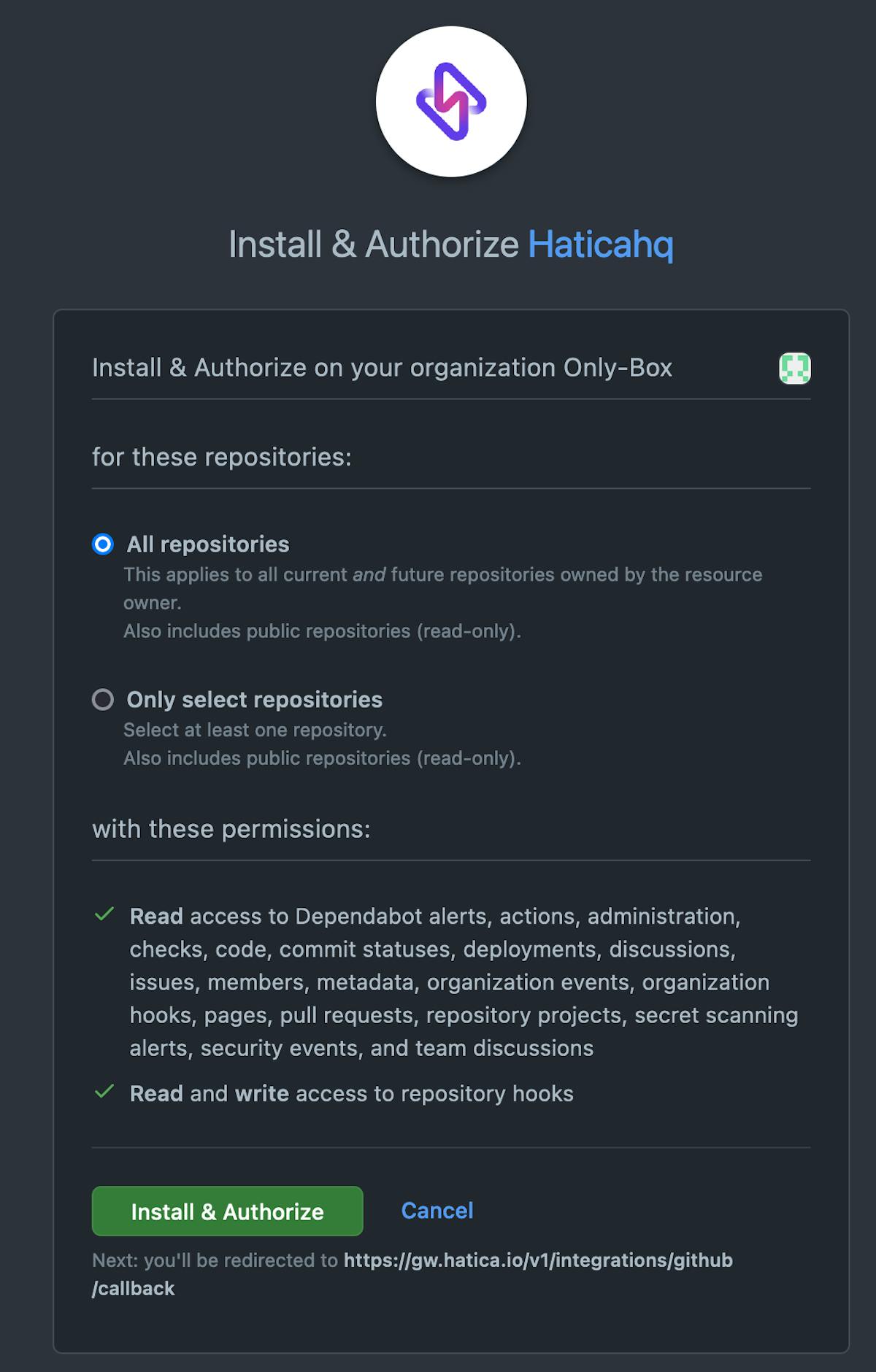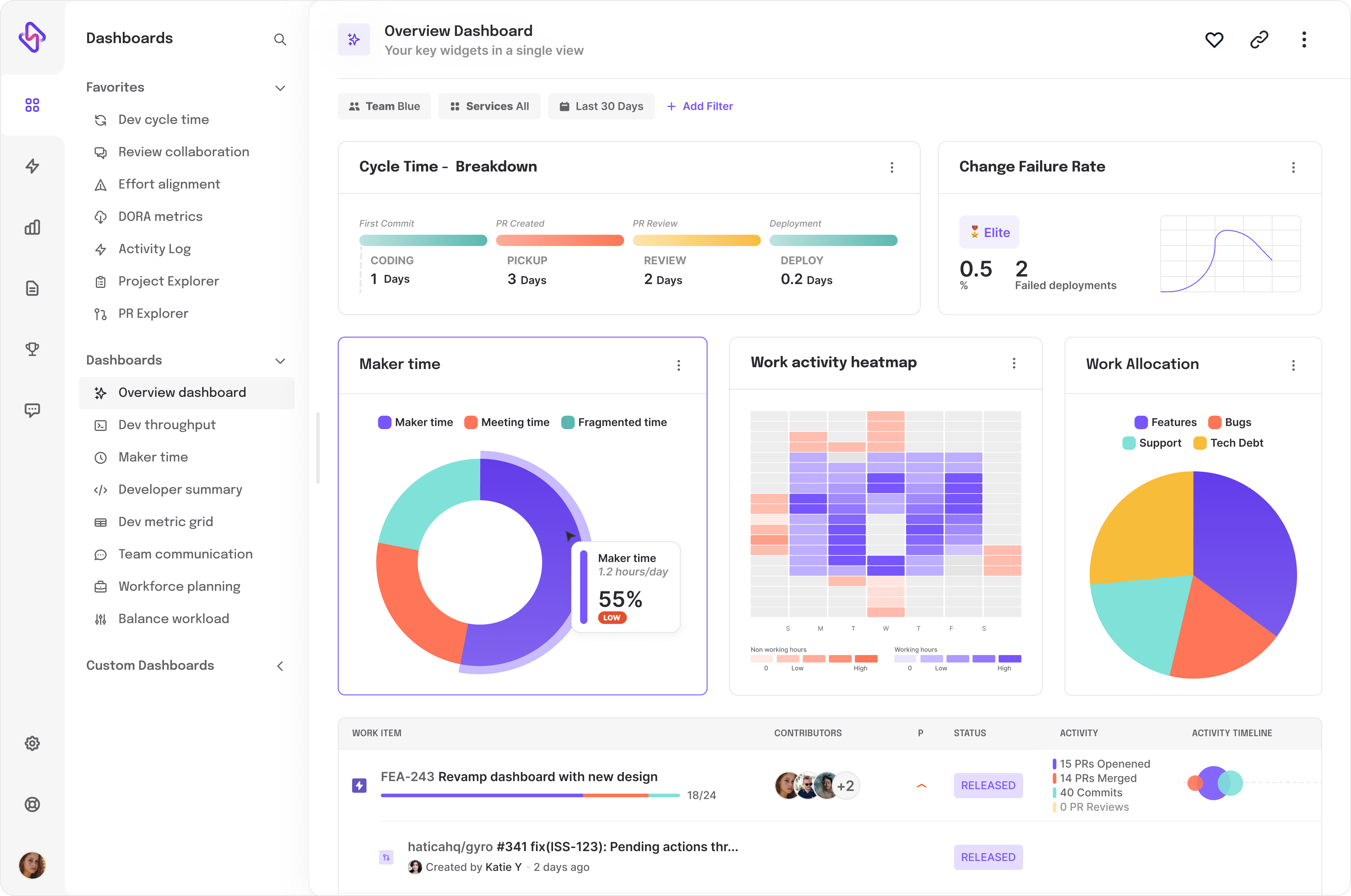Every engineering leader knows the struggle of sluggish workflows that kill efficiency. Picture this: deadlines are closing in, budgets are spiraling out of control, and team morale is hitting rock bottom. These are the tough realities of inefficient development workflows.
Delays in code reviews, juggling multiple projects without clear visibility – the list goes on. And inevitably, these inefficiencies often lead to missed deadlines, increased stress, and a halt in innovation.
Manual task updates and fragmented communication make things even worse, leaving teams tangled up in admin work instead of making real progress.
But what if you could turn things around, streamline your processes, empower your team, and boost productivity? That’s where integrating GitHub with developer productivity tools comes into play.
In this blog, we’ll dive into how combining GitHub with a developer productivity tool can make a world of difference for your team and significantly improve your processes.
How Does Integrating GitHub with a Dev Productivity Tool Help?
Integrating GitHub with a developer productivity tool can truly transform your workflow and make life a lot easier for your team. Imagine having all your important information in one place, so you’re not constantly jumping between platforms. This means you can focus more on coding and solving problems, and less on trying to find what you need.
The integration takes care of updating tasks and tracking progress, so you don’t have to worry about things slipping through the cracks.
This integration also boosts collaboration, making it easy for everyone to share updates and provide feedback, keeping everyone on the same page and aligned with goals and deadlines.
With clear dashboards and analytics, you get a real-time view of your project's status, helping you spot and fix issues early on. This means less time wasted on admin work and more time spent on what really matters.
But how does this integration help in the day-to-day processes of a busy engineering team?
Well, here are a few ways.
- Daily Stand-ups: Ditch the tedious updates. Leverage real-time data on progress and identify roadblocks before they become problems. Stand-ups become laser-focused, engaging in productive discussions.
- One-on-One: Lean into conversations with data-driven insights into individual performance. Move beyond subjective feedback and use concrete data to guide development and identify areas for growth.
- Code Reviews: Encourage smoother collaboration with clear visibility into code changes and potential issues. Identify bugs early, streamline the review process, and free up valuable developer time.
- Monthly and Quarterly Reports: Gain valuable insights into project progress and identify trends for informed decision-making. Track team velocity, measure code quality, and make data-driven adjustments to optimize your development lifecycle.
Additionally, integrating GitHub with your developer productivity tool can truly transform how your team works together. Think of GitHub as the backbone of your collaboration, with its powerful version control system ensuring everyone is on the same page. When you pair this with a productivity tool, you unlock a whole new level of efficiency.
The Benefits of Integrating GitHub with Your Dev Productivity Tool
We've talked a lot about how this integration helps, but what exactly are the benefits of this integration in the long run? How can it make engineering teams work smarter, not harder, and with fewer investments? Well, in this section, we explore the vast and impactful benefits of combining GitHub with a dev productivity tool and how it can make a significant impact on your team's efficiency and success.
Improved Visibility and Reporting
As an engineering leader, one of the biggest challenges is maintaining visibility into your team's progress. By integrating GitHub with your dev productivity tool, you can gain valuable insights into your team's performance. These tools provide comprehensive dashboards and reports that highlight key metrics such as commit frequency, code review times, and issue resolution rates.
With this improved visibility, you can make data-driven decisions to optimize your development processes.
See a bottleneck in code reviews? Allocate resources to get things moving faster.
High issue resolution times signal a need for training. Provide the support your team needs to excel.
With this level of transparency, you can continuously improve your workflow and keep your team firing on all cylinders.
Refined Code Quality and Collaboration
Building high-quality software is any engineering team's bread and butter. Keeping this in mind, integrating GitHub with your dev productivity tool can significantly enhance code quality by promoting better collaboration and review practices. Think clear guidelines, consistent processes, and every line of code getting a thumbs up before it goes live.


